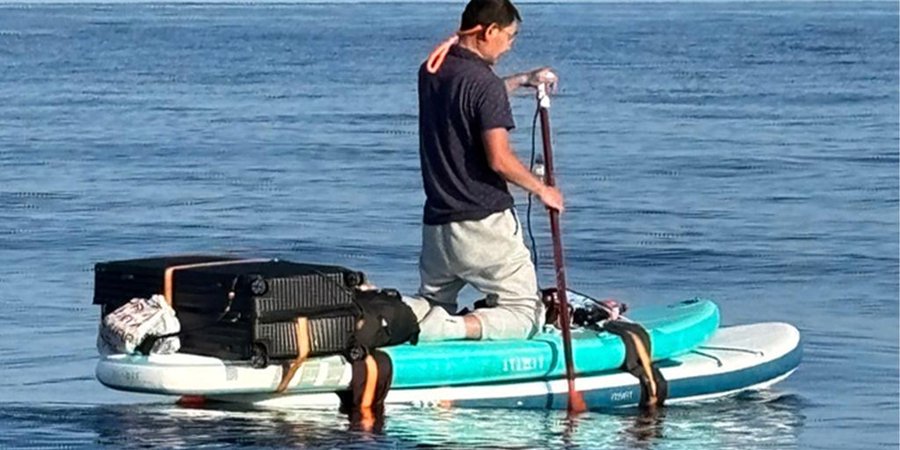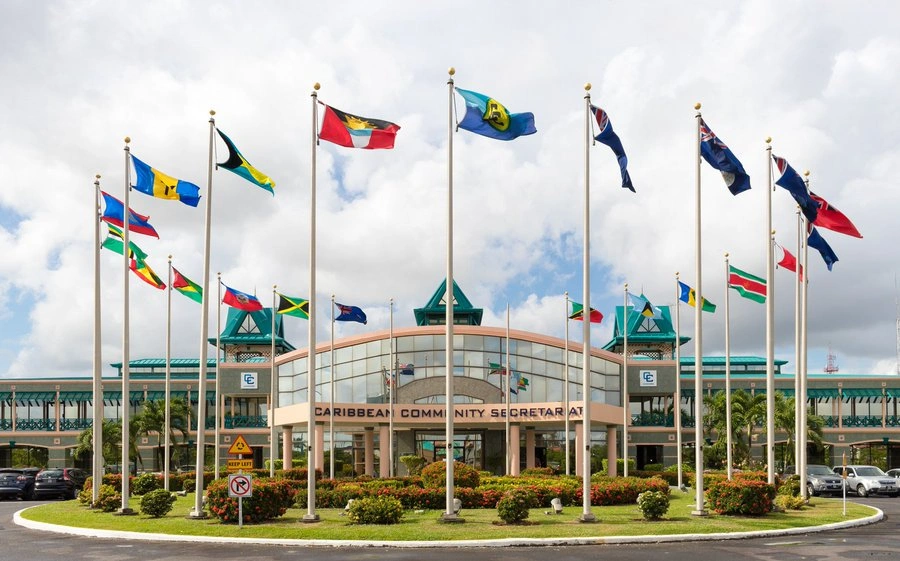The U.S. Coast Guard apprehended a Chinese migrant navigating a makeshift paddleboard approximately 25 miles off Freeport, Bahamas, officials announced Wednesday, highlighting escalating concerns over illegal migration routes from the Caribbean and China’s growing influence in the region. The incident follows a separate smuggling operation in Florida last week involving 26 Chinese nationals, underscoring a dramatic rise in unauthorized entries that U.S. lawmakers warn could pose national security risks.
High-Seas Interception and Smuggling Trends
Photos released by the Coast Guard showed the migrant balancing on two stacked boards strapped with luggage, a perilous attempt to reach U.S. shores. The individual, whose identity remains undisclosed, was transported back to Bahamian authorities. The apprehension comes amid a staggering 8,000% increase in Chinese migrants encountered at U.S. borders since fiscal year 2021, according to federal data.
Just days earlier, Coral Gables Police arrested 26 Chinese nationals—nine women and 17 men—in a coordinated smuggling operation traced to the Bahamas. Two suspects of Cuban and Puerto Rican descent, found carrying a firearm, allegedly transported the group via boat to a secluded marina in South Florida. “These operations exploit remote waterways to evade detection,” Coral Gables Police Chief Ed Hudak Jr. said.
Lawmakers Sound Alarm Over Security Risks
The surge in Chinese migration coincides with bipartisan warnings about Beijing’s expanding footprint in South and Central America, where infrastructure investments and tech partnerships have fueled fears of espionage and political leverage. “China’s encroachment in our hemisphere, paired with illicit migration channels, demands urgent scrutiny,” said Rep. María Elvira Salazar (R-FL), a member of the House Foreign Affairs Committee.
U.S. officials note that Chinese migrants often pay smuggling networks up to $35,000 for passage, frequently transiting through Central America or the Bahamas. While many claim asylum, critics argue the system is exploited for economic migration rather than persecution cases.
Regional Challenges and Policy Gaps
The Bahamas, a frequent staging ground for smuggling due to its proximity to Florida, has struggled to curb maritime trafficking despite joint patrols with U.S. agencies. Meanwhile, the Coast Guard’s recent interdiction underscores the creative—and dangerous—methods employed by migrants. “These voyages are life-threatening,” a Coast Guard spokesperson said. “We’re prioritizing dismantling smuggling networks.”
Homeland Security Secretary Alejandro Mayorkas recently pledged “targeted enforcement” against transnational criminal organizations, though critics argue progress remains slow.
Broader Implications for U.S.-China Relations
As tensions between Washington and Beijing escalate over technology competition and Taiwan, the migration surge adds a new layer of complexity. Analysts warn that China could leverage migration flows to distract U.S. resources or infiltrate critical sectors. “Every unauthorized entry represents a potential vulnerability,” said former CIA officer John Sipher.
For now, the intercepted migrant near Freeport serves as a stark reminder of the human toll—and geopolitical stakes—of America’s immigration.



